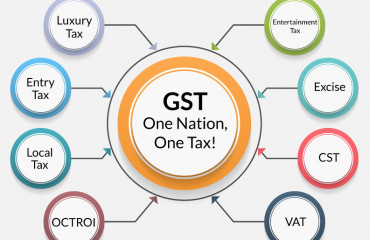‘The process of setting up a central advance ruling authority which would help reconcile contradictory advance rulings should be expedited’
Four years since the GST reforms were implemented, there is a growing clamor for a comprehensive review of the tax regime to potentially avoid protracted litigation, rigorous exposures in the form of interest and penalties. In an interview, Saket Patawari, executive director – Indirect Tax, Nexdigm, an independent global corporate advisory firm lists the key areas. Edited excerpts.
It's been more than four years since GST implementation. How has been the experience of the new tax regime so far?
Last four years have been a roller coaster ride for the government machinery, GSTN and the taxpayers. While a lot has settled now in terms of compliance mechanism and GSTN, however, from a law point of view it is still at a very nascent stage. There are several issues bothering the industry and it will take a while to have things settled. Over the course of four years, various issues/lacunae have come to light in the GST legislation. One such issue faced by the outsourcing industry has been spooked by the extremely wide interpretation of the term 'Intermediary' whereby even services provided on principal-to-principal basis to foreign recipients, which otherwise are exports are sought to be taxed by revenue authorities and rejection of export refunds. While the CBIC has tried to allay some of the industry concerns by issuing a clarification on the scope of 'intermediary', there still exists several areas / scenarios which remain open for interpretation.
Is there any further scope for rationalizing the provisions in input tax credit?
Yes, while we have witnessed stringent provisions being introduced to curb (input tax credit) ITC frauds, some aspects relating to entitlement of credit need to be looked into. For example, the real estate sector has limited exposure as sale and purchase of immovable property is presently outside the ambit of GST. However, ITC entitlement in this sector is largely restricted. Hence, assessees primarily earning from letting out of their commercial immovable property are required to pay GST on their output services but are denied ITC with respect to development costs incurred for providing taxable supplies of renting / leasing. Provisions of the law regarding this sector can be relaxed to bring it on a par with other sectors in terms of ITC availability, thereby aiding this pandemic battered sector.
We have seen many taxpayers using the advanced ruling mechanism to get clarity on various issues such as classification, taxability etc. Do you feel that an advance ruling is an effective tool in the hands of the industry?
On the contrary, the present situation is such that an industry player would think twice before approaching an AAR, as some of the decisions of the authority are being viewed as leaning towards the Revenue. Further, there is lack of consistency in the rulings provided by different state authorities on the same matter, which defies the whole purpose (certainty) of constituting an AAR. To reduce the trust deficit, the GST Council could look at outside the box solutions like appointing technical/legal experts on the benches of advanced ruling authorities, thereby giving the decisions a much wider acceptance. The process of setting up a central advance ruling authority which would help reconcile contradictory advance rulings should be expedited.
One of the requirements for claiming refund of GST in case of export of goods and/or services is the submission of Foreign Inward Remittance Certificates or FIRCs/Bank remittance certificates (FIRC) to refund processing authorities. It may be pertinent to note that banks have stopped issuing such FIRCs pursuant to RBI Circular. Secondly, obtaining a BRC is a tedious process. While some refund sanctioning authorities do consider such restrictions and process the application basis alternate documentary proofs furnished by the exporter, others strictly go by the requirement of FIRC/BRC to reject the application or issue a deficiency memo for want of requisite documents. In addition to this, once a deficiency memo is issued for want of documentation, the reply thereto is treated as a new application in itself and the period of limitation is applied accordingly

